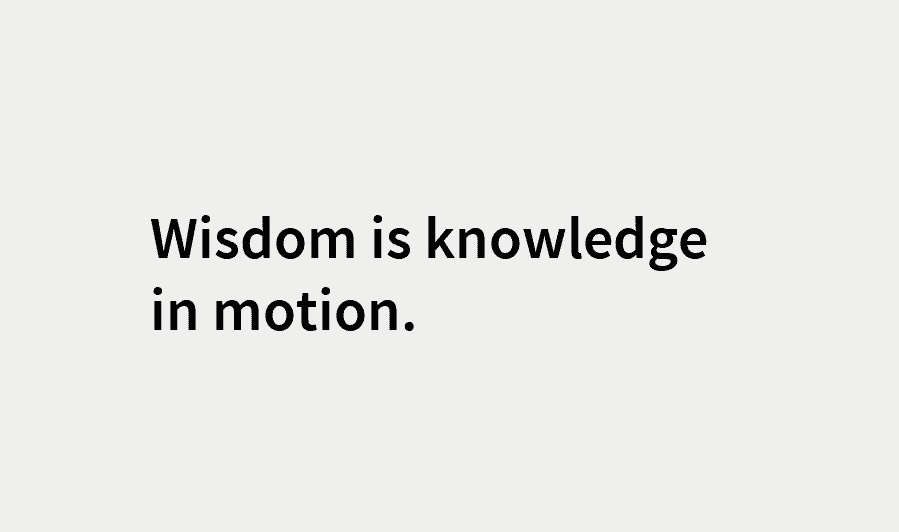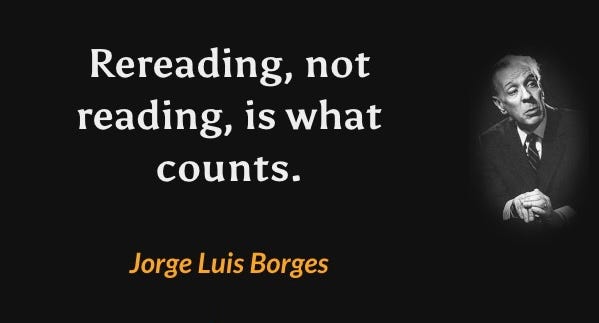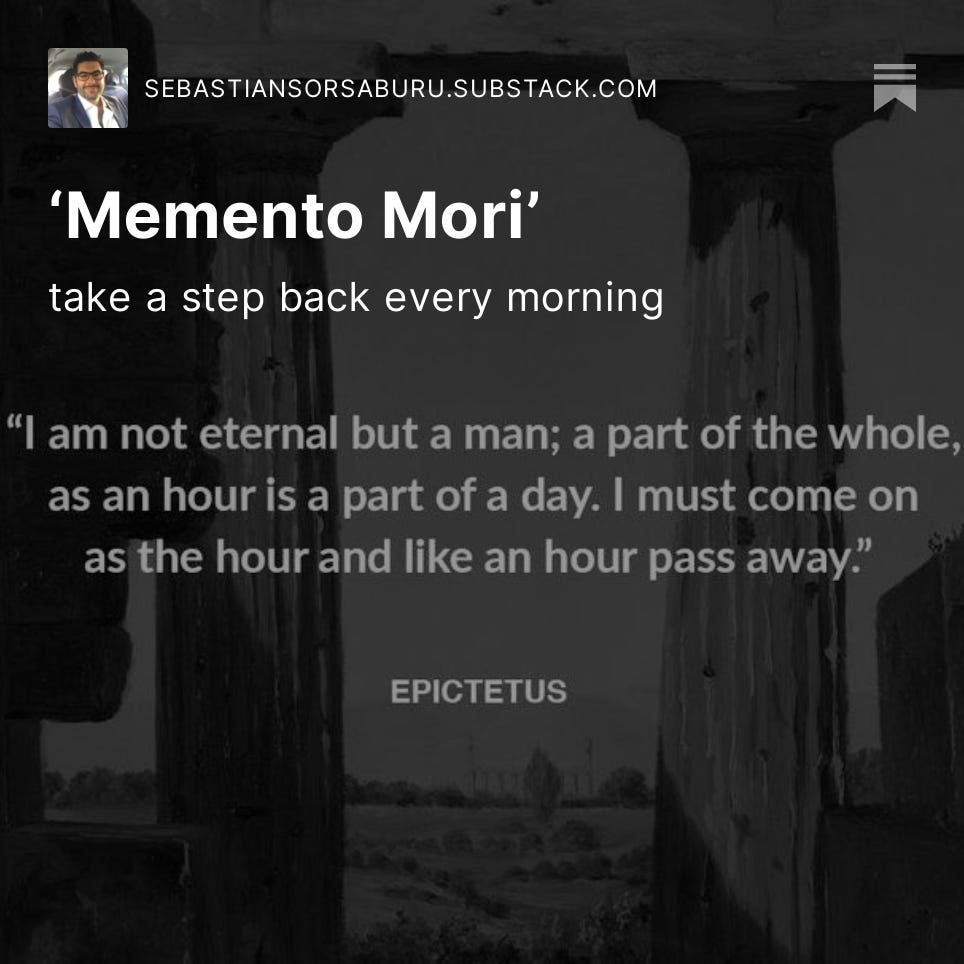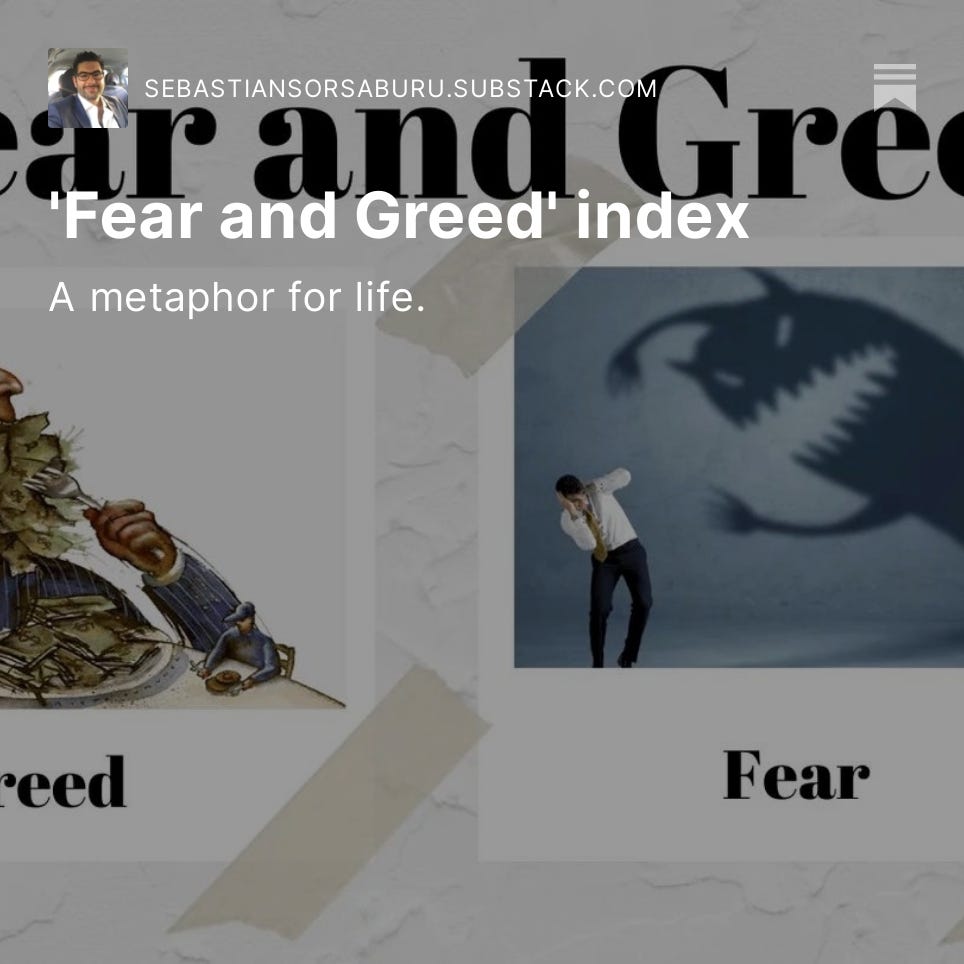Dear readers,
“Leadership Reflections” welcomes a new section to this enterprise: “Knowledge in Motion: Best of the Month”
The goal with the monthly summary is to provide you with some quotes from the posts linked to practical prompts and questions to use in 1:1 meetings, feedback / coaching sessions, or to inspire themes for larger team meetings.
During the month of August you will receive the backdated 10 editions of “Knowledge in Motion…” (recap from the 41 newsletter between Sep 2022 through July 2023) as a way to celebrate the 1-year anniversary since we started this journey.
I will be back in September with the Sunday newsletter and the Wednesday Spark, as well as with “Knowledge in Motion…” at the end of each month thereafter.
PLAYING DEVIL’s ADVOCATE:
“Why do I need this? I’ve already read all the posts, this is repetitive”.
I suggest you take a step back and read -and reread- the quote below:
For knowledge to sink in and for ideas to become action, there is no other way than to go back to our notes, reframe, dig deeper, visualize, connect the dots and ask questions. It’s like when you watch a movie for the second or third time, invariable you see things you had not seen before, better understand characters or even discover subplots you didn’t even know that were there in the first place. I believe you will find this valuable.
It’s not the “how interesting!” reaction when we first read what matters; it’s the “Aha moment!” when we re-read what transforms.
September 2022 - We had a lift off!
Link to "Leadership and Pizza"
“On Venus, you could cook a 16-inch pepperoni pizza in seven seconds, just by holding it out to the air. (Yes, I did the math)”
~ Neil deGrasse Tyson, astrophysicist.
The essence of leadership is found at the cross-roads of a dual journey: learning to lead oneself and learning to lead others.
The lack of self-awareness is one of the greatest obstacle to growth. But I soon discovered a more perilous pitfall - self-deception. It's not merely lacking self-awareness of our flaws, blind spots and how we are perceived by others, but far more treacherous. It's the act of fooling ourselves about who we are and how we are viewed. And the irony is, we don't even know we're doing it!
Leadership is an endless journey deep within ourselves
Connect the dots between pizza and leadership:
Always use the finest ingredients to build a strong foundation. (Best Talent in the right Culture at their Best)
Perfect the ratios and techniques for consistency. (Develop the Right Processes)
Knead the dough with care, again and again. (Nurture your Team, Love your People)
Allow it time to rise, more than once. (Let people shine)
Use only a few, but the best, ingredients to top it. (Keep it simple, keep it brilliant)
Bake in a hot oven for a short time. (Create pressure to help people be at their best for high impact, coach, trust and move on)
Savor every bite and enjoy it. (Celebrate results, laugh)
Questions and prompts to use with your team:
Give me an “impossible” fact, but that’s indeed “possible” when looked at it from a different perspective (using the logic in the quote by Neil deGrasse Tyson).
this can be a great conversation starter to reinforce the idea that one should never jump to conclusions or judge people and situations before taking the time to understand where things are coming from. Something may look obviously wrong, but be right, under a different set of assumptions.
seeking to understand the real context in which things are presented is crucial for success in communication in general and in problem solving in particular.
Everybody talks about leadership, but what does it mean to you? what are your sources of inspiration? what do you think your strengths are? who do you think people believe your strengths are? and your limitations? do they match? tell me about how you practice self-awareness? is that important to you? do you understand the implications? how do you take feedback? do you seek it proactively? what do you know about yourself that you believe has prevented you from growing? what has helped you grow? what feedback have you heard coming at you again and again but you may still think that it is the outside world that doesn’t get you?
If you had to apply a cooking metaphor to leadership, what would it be and why? if not a cooking one, any other metaphor? Why? How does it resonate with you? how do you apply it to yourself and the people you have to influence (direct reports or not)?
October 2022
October 5
"Come to terms with death, thereafter anything is possible."Albert Camus
Seneca, in his infinite wisdom, articulates this beautifully: "It's not that we have a short time to live, but that we waste much of it.
Seneca further observes, "You act like mortals in all that you fear and immortals in all you desire."
"Memento Mori," Latin for 'remember that you die,' is a profound philosophy that has been engraved into the human consciousness through the ancient stoic philosophers. Seneca, wrote extensively about this in "On the Shortness of Life." This concept paradoxically emphasizes not the inevitability of death but the vitality of life.
The essence of 'Memento Mori' extends beyond the physicality of life and death. It symbolizes the transient nature of opportunities, relationships, moments, and yes, leadership roles too.
Questions and prompts to use with your team:
How can the principle of “memento mori” be integrated into your leadership approach to cultivate a sense of urgency and focus on what truly matters?
In what ways can reflecting on the passing nature of life through “memento mori” inspire you to lead with greater compassion and empathy?
How can the concept of “memento mori” influence your decision-making process as a leader, prompting you to prioritize long-term impact and legacy over short-term gains?
How can you use the reminder of mortality to overcome fear and embrace a courageous approach to your leadership style? Can you take bolder more innovative steps in your daily job? what about your overall leadership journey? Where do you think you are stuck?
How can the practice of “memento mori” help you maintain humility and gratitude as a leader, acknowledging the contributions of others to foster an inclusive, collaborative and supportive work environment?
October 14
“A society grows great when old men plant trees whose shade they know they shall never sit in." (Greek Proverb)
In simple terms, time preference refers to the tendency of people to chose present over future consumption because the expected utility of consumption diminishes over time. A higher time preference means a greater focus on the present moment, while a lower time preference emphasizes the future.
“We can choose to make our lives easier in the long run by tackling the difficult tasks today, or we can prioritize easy tasks today and make our future lives much harder.”
The more we cultivate a high time preference mindset and we shape our daily behaviors accordingly, the stronger our need for immediate gratification becomes. We become a slave of time. This in turn seriously affects the ability to cultivate the virtue of patience and to live in a present moment of awareness. Life becomes an endless series of "todays."
High-time preference breeds anxiety and impulsive decision-making. Low-time preference nurtures mindfulness and a thoughtful decision-making process.
Low time preference decision-makers think in terms of years, not days; in decades, not years. They are the ones planting the trees.
Questions and prompts to use with your team:
What does the act of "planting trees whose shade they know they shall never sit in" symbolize in the context of leadership development, and how does it illustrate the concept of low time preference? What resonates with you, high or low time preference mindset?
What are the potential consequences of prioritizing immediate results over long-term investments in team and organizational development?
How can you adopt the mindset of "old men planting trees" to foster sustainable growth and lasting impact in your own career and with your team?
How can understanding the difference between high time preference and low time preference help leaders make more informed decisions, especially when it comes to balancing short-term needs with long-term goals for building high-performing teams?
How might your willingness to invest in the future success of your team and organization, even if you won't directly benefit from it, shape your leadership style and influence the overall culture within your group?
October 21
Link to consolidated post (originally in two parts) on "Fear and Greed Index"
“(…) to be fearful when others are greedy and to be greedy only when others are fearful”.
Warren Buffet
Managing risk is one of the most important skills to master in life. Many decisions are made without a clear idea of how their consequences may play out three, five or ten moves ahead; without understanding the opportunity cost.
Greed translates into over-confidence in our own abilities, in thinking that the winds will always blows our way. Fear translates into becoming our worst enemy, self-sabotaging every possibility of success, missing on otherwise favorable circumstances.
In fear we tend to get all out; in greed we tend to go all in. Both can lead to big losses.
“Stocks can’t outperform their business indefinitely”. There are bull moments in life when everything seems to go our way no matter what, but there is a very important lesson here: We can never let positive momentum outrun the fundamentals of our competencies.
“Only when the tide goes out you do discover who’s been swimming naked” Warren Buffett
Good data that for rational decision-making is at high risk of being controlled by extreme emotions.
Fear - avoid paralysis by fear in the tough times, focus to help you think clear and move out of that zone, act carefully but act! The best opportunities may be right in front of your blind eyes.
Greed - watch out carefully for the Hubris that is waiting for you around the corner in all good times, pace yourself! The most dangerous mistakes may be just an extra overly confident step away.
Questions and prompts to use with your team:
How can the concept of "to be fearful when others are greedy and to be greedy only when others are fearful" be applied to your leadership approach, and very important, how it might influence your decision-making during times volatility and uncertainty?
How can this principle help you navigate challenging situations as a leader and to inspire and guide your team?
How can you ensure that positive momentum within your leadership style and results does not overshadow the importance of keeping strong fundamentals in place and evolving basic competencies? What strategies do you implement to strike the right balance so you don’t get surprised when momentum slows down or trends change?
How do you interpret the quote "Only when the tide goes out do you discover who’s been swimming naked" in the context of your personal and leadership responsibilities? Competencies, ethics, accountability, compliance… are these the robust foundations of your team?
How do you leverage the principles of “momentum” vs “fundamentals”; to shape your leadership development plan and enhance your capabilities in the long run?











